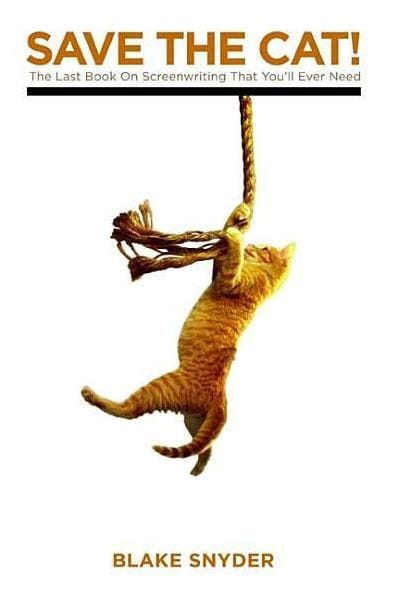What I learnt this week: Log Lines

This week I learned that writing a log line can help clarify a story.
I recently picked up a copy of 'Save the Cat' by Blake Snyder, which is peddled as the last book on screenwriting I'll ever need.
(He's written lots of other books, though, which kind of says to me that he was either fibbing or really wants to create a franchise on this)

At the start of the book, Snyder tells the reader how important it is to have two things before you start writing - a good title and a good logline.
"Well I might not have a title," I thought, "but I can easily write a logline for my Fantasy project. It's... it's... erm..."
After this revelation that wasn't a revelation because I revealed nothing, I dedicated some writing time to pull together my logline for the fantasy project. In the book, Snyder points out that a logline helps solidify the plot, and would help me pitch it to an audience. He mentions a few points to consider when writing it, and what it means to the reader and the writer. He highlights how hard a good logline is to write, and why it takes time.
So - what did I learn?
Loglines are hard!
It's incredibly difficult to put an entire book's worth of ideas into a single line. I was prompted to think about what made my story different and exciting for a reader. This is something that I wished I'd have done before I wrote "All Good Things", which I'm submitting now and meeting a submission brick wall.
Need an Edge
I needed something to give my story a bit of an edge. I had my basic premise, but it quickly became obvious that it had all been done before. I love the world I've created and the rules and laws, but the story was missing a hook. Who cares about a group of fantasy characters going to overthrow a bad guy? What was different about my story?
Be brave or go home
I learnt that if I write a logline after I've started to write a story I need to be brave and be willing to change what I've written to date. Seeing as there was no hook, rather than try and fit a logline around what I've written, I needed to be willing to smash up my story to improve it.
I gave myself a licence to change the overarching story, as well as get pedantic with the words I used in the logline itself. Changing one little word might not seem like much, but before Easter, I learnt how one word can make a difference, so I tried to focus on the meaning and implications of even the smallest word.
Eventually, I got there - at least for now. There's a chance that this changes when I start pitching the book out (and when I've finished it!) but for the moment my logline is:
A fragile alliance of criminals, magicians and monsters decide their only chance to avert an apocalypse is to overthrow their world's last honourable ruler.
Now that sounds like a book I'd like to read. So I'm hoping it'll also be the type of book others will be interested in. I've had to make a pretty major change to the first part of the story to make this work, which means more editing (groan) but I think it'll be a better story because of it.
So this week I've learnt that a clear logline can make a difference when writing a story. By forcing myself to explain a story in one line I've focused on what the story should be about, improved it, and made it a lot clearer.
Until next week,
Phil